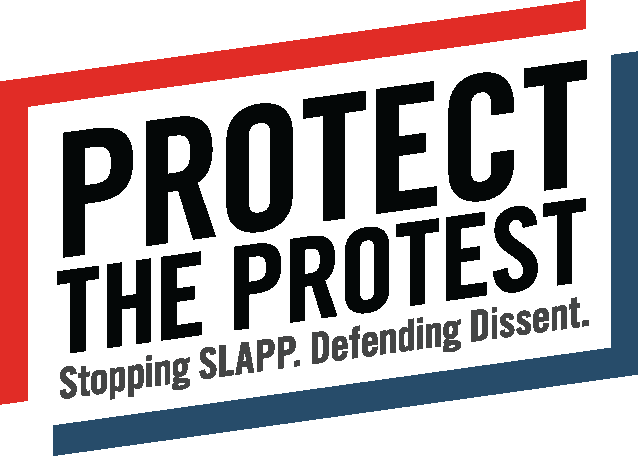Encyclopedia of Types of SLAPPs
Legal bullies never admit that they are filing a “strategic lawsuit against public participation” (SLAPP); SLAPPs come disguised as legitimate legal claims. Here are some of the most common types of legal theories used in SLAPPs. Note: these legal theories all appear in legitimate lawsuits, as well; in each case, you need to look at the specifics to determine if a SLAPP situation exists.
Defamation
When the defendant says or publishes false statements, which cause injury to the plaintiff’s reputation. Defamation is by far the most popular disguise for SLAPPs.
Generally, the defendant also has to know that the statement was false. Defamation includes libel (written falsehoods), slander (spoken falsehoods), and trade libel (damage to a product or service of a company, rather than the company’s general reputation).
Conspiracy
When two or more persons agree to commit an illegal or wrongful act. This is often combined with another claim.
Intentional Infliction of Emotional Distress
When the defendant intentionally or recklessly does something that causes the plaintiff emotional distress.
Interference with Contract or Economic Advantage
When the defendant intentionally scuttles a commercial project or forces the parties to breach their contract. Also referred to as “tortious interference with contract” or similar phrases. This does not include actions that fall within protected free speech, such as a protest against the project (on public lands).
Invasion of Privacy
When the defendant discovers and publishes another’s private information or conduct. This generally does not apply to newsworthy, public interest issues.
Malicious Prosecution (or Abuse of Process)
When the defendant uses the legal process to intimidate a person. This can be found when a company or individual is sued and then counter-sues using a SLAPP lawsuit. Victims of SLAPP lawsuits can also file counterclaims using this.
Nuisance
When the defendant’s conduct causes harm to others’ health, offends the senses, violates the laws of decency, or obstructs the use and enjoyment of property.
Racketeer Influenced and Corrupt Organizations (RICO) Act
Originally intended as an anti-mafia law to combat racketeering, some legal bullies have attempted to equate civil society advocacy with racketeering. RICO allows for victims of racketeering to sue for damages. If the defendant is found liable, the court orders triple damages and the payment of attorney fees. Often, this can force the defendant into bankruptcy.
Trespass on private land
When the defendant enters onto land without consent of the landowner. The landowner can pursue civil actions to claim damages for which the trespasser is responsible.
